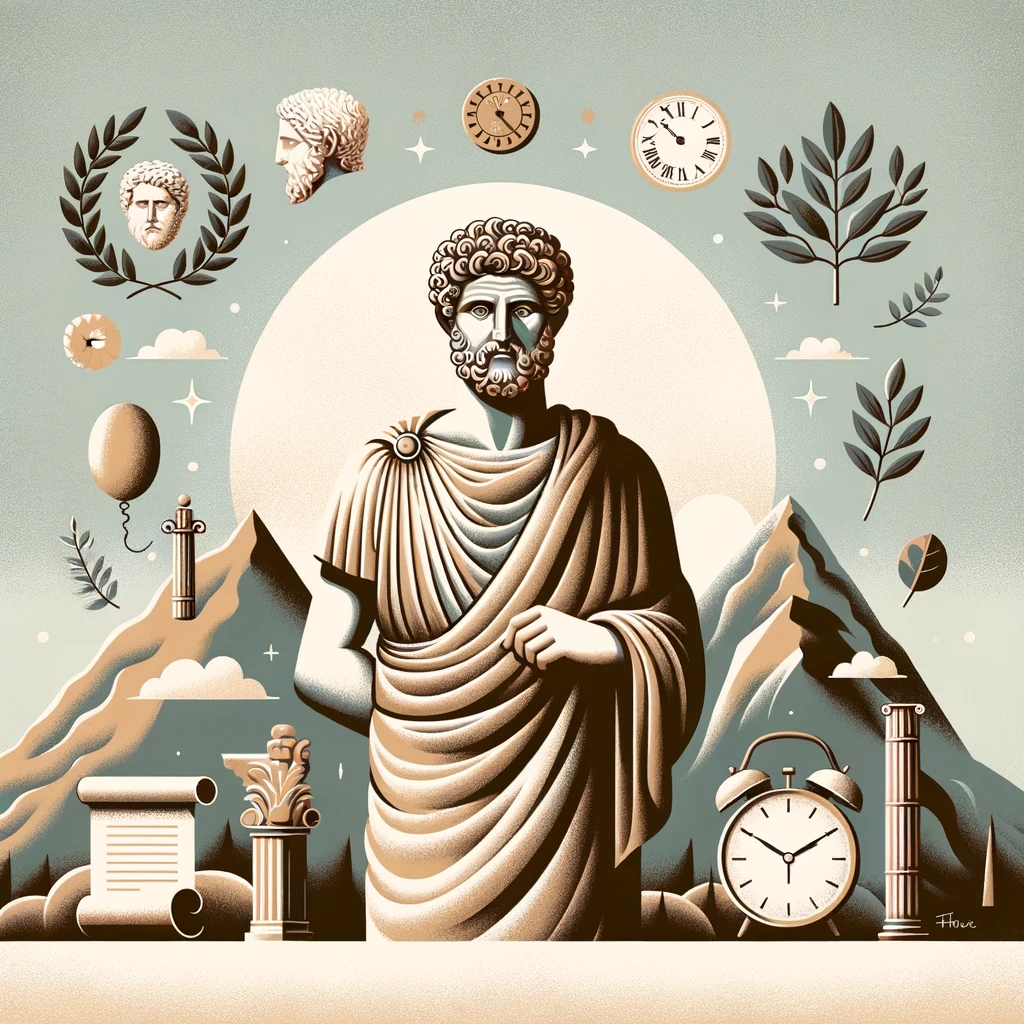Stoicism is a school of Hellenistic philosophy founded in Athens by Zeno of Citium in the early 3rd century BCE. It teaches the development of self-control and fortitude as a means of overcoming destructive emotions. The philosophy asserts that virtue (such as wisdom) is happiness, and judgment should be based on behaviour rather than words. Stoicism was popular in the Roman Empire and influenced early Christian thought.

Key Principles of Stoicism
-
Virtue as the Highest Good:
- Stoicism holds that the highest good is virtue, which includes wisdom, courage, justice, and temperance. These virtues lead to a life in harmony with nature and reason.
-
Living in Accordance with Nature:
- Stoics believe that living in accordance with nature and reason is essential. This belief means understanding the natural order of the universe and accepting it.
-
Indifference to External Goods:
- External goods, such as wealth, health, and reputation, are considered indifferent. While they can be preferred or dispreferred, they do not contribute to true happiness. Only virtue is truly good, and vice is truly bad.
-
Control Over Emotions:
- Stoicism teaches that destructive emotions result from errors in judgment. By practising rational thought and self-discipline, individuals can overcome such emotions and achieve inner peace (apatheia).
-
Focus on What Can Be Controlled:
- The Stoics emphasize distinguishing between what is within our control and what is not. They advocate focusing on our own actions and attitudes while accepting that external events are beyond our control.
-
The Dichotomy of Control:
- This principle is central to Stoic practice. It divides things into those we can control (our own thoughts and actions) and those we cannot control (external events, other people’s actions). Stoics strive to accept the latter and focus their efforts on the former.
Major Stoic Philosophers
-
Zeno of Citium:
- The founder of Stoicism, Zeno’s teachings laid the groundwork for the Stoic school, emphasizing rationality and virtue.
-
Epictetus:
- A formerly enslaved person turned philosopher, his student Arrian recorded Epictetus’ teachings in the “Discourses” and the “Enchiridion.” He stressed the importance of focusing on what is within our control.
-
Seneca:
- A Roman statesman and advisor to Emperor Nero, Seneca wrote extensively on Stoic philosophy. His works, such as “Letters to Lucilius,” offer practical advice on how to live virtuously.
-
Marcus Aurelius:
- The Roman emperor and Stoic philosophe who authored the “Meditations,” a series of personal writings reflecting his Stoic beliefs and providing insights into how to live a virtuous life.
Practical Application of Stoicism
-
Daily Reflection:
- Stoics practice daily reflection to review their actions, align them with their principles, and prepare for future challenges.
-
Mindfulness and Presence:
- Being present in the moment and aware of one’s thoughts and actions is crucial for practising Stoicism.
-
Negative Visualization:
- This involves contemplating potential challenges or losses to build resilience and appreciate what one has.
-
Voluntary Discomfort:
- Practicing voluntary discomforts, such as fasting or enduring physical hardship, helps build self-discipline and reduce the fear of future difficulties.
Stoicism and Star Wars
Stoicism remains relevant today as a practical philosophy for managing stress, building resilience, and living a fulfilling life based on rationality and virtue.
Stoicism and Star Wars share several thematic connections:
Emotional Control: Stoicism emphasizes controlling one’s emotions and remaining calm under pressure, similar to how Jedi are trained to manage their emotions and avoid the dark side.
Virtue and Wisdom: Both Stoicism and Star Wars highlight the importance of virtue, wisdom, and making ethical choices.
Impermanence: Stoics and Jedi alike accept the transient nature of life, understanding that attachment can lead to suffering.
Self-Discipline: Practicing self-discipline is central to both philosophies, guiding behavior and decision-making.
These connections illustrate how Stoic principles can be seen in the teachings and practices of the Jedi.